Decoding Bihari Wedding: The Unique Wedding Rituals and Traditions
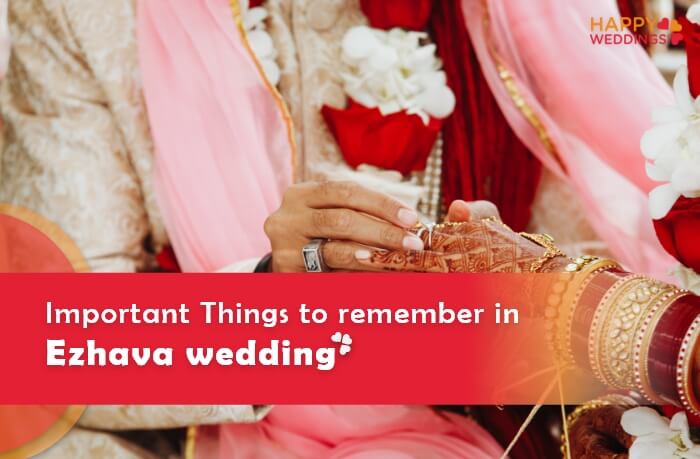
When it comes to Ezhava wedding, there are various ritualistic traditions associated with the ceremony, which in turn emphasizes the significance of age-old traditions of the Hindu community.
As we all know, India is a land of diversity and especially Kerala tops the list with its rich cultural diversities and traditions.
You can see a certain set of customs strictly associated with the marriage ceremonies in the Hindu community.
Among them, the wedding rituals of the Ezhava community stands out as the customs and practices of this community meticulously highlight the so-called traditional ethnicity which God’s Own Country holds.
What all you need to remember during Ezhava wedding rituals?
It’s true that the concept and the execution of marriage has changed drastically but still, there are some ritualistic practices where no one from any generation agrees to compromise. The world may be on its peak of transformation but certain wedding rituals can’t be changed which profoundly defines its relevance. And now, it’s time for us to navigate through some of the persistent Ezhava wedding rituals.
The Ezhava community is the largest Hindu community in Kerala and hence they own their own customs and traditions which is an integral part of Kerala wedding ceremonies.
Like in every marriage, Ezhava wedding also comprises of several pre-wedding, wedding, and post-wedding ceremonies. While the pre-wedding ceremonies include Nischayam (Engagement), Ayana ceremony, Namaskaram, and Mehandi ceremony, the wedding ceremonies include Kanyadanam, Thalikettu (Tying the knot), and Saptapadi. The post-wedding ritual is mainly the Salkaram, which means “Reception’.
However, on behalf of the wedding rituals there are a few important things to remember. Have a read through the important things to remember during Ezhava wedding ceremonies.
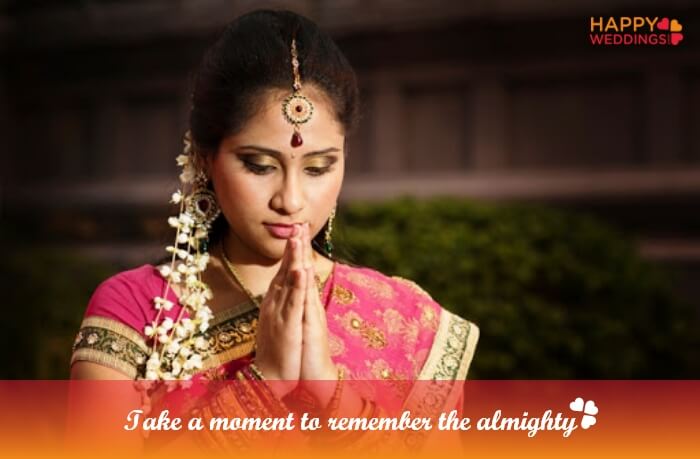
Ezhava weddings are religiously significant and hence the wedding rituals begin with offering prayers to the almighty to seek his blessings. The bridegroom as well as the families pray to Lord Ganesha and offer flowers to the idol which would be decorated beautifully.
The main reason behind the ritual is to hold off all the evils and misfortunes and to welcome the complete positiveness that brings auspiciousness to the newlywed to lead a life full of happiness. Since the ritual is considered vital, the bride and the groom are not supposed to skip this, just to avoid mishaps if any.
During the wedding, the Goddess of power is also worshipped in the bride’s house. This is also one important ritual to complete the marriage without any hassle and to make it a success.
There is a popular belief that by worshipping the Goddess, the bride is abundantly provided with the ability to tackle new responsibilities to lead a healthier and happier life.
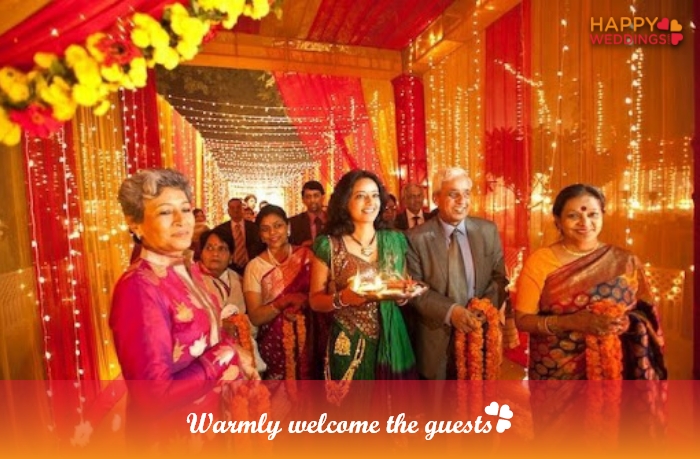
Since a grand affair, Ezhava weddings are very well celebrated by the families. They invite a large number of relatives and guests to enhance the ceremony and to make the event a splendid celebration. So, it is very important to pay attention to all of them.
Not only the families but the bride, as well as the groom, should greet them well without any hesitation. Be a good host to all of them. When you go for Ezhava wedding ceremonies, you will come to know that how the people of this community consider the grandeur of the marriage.
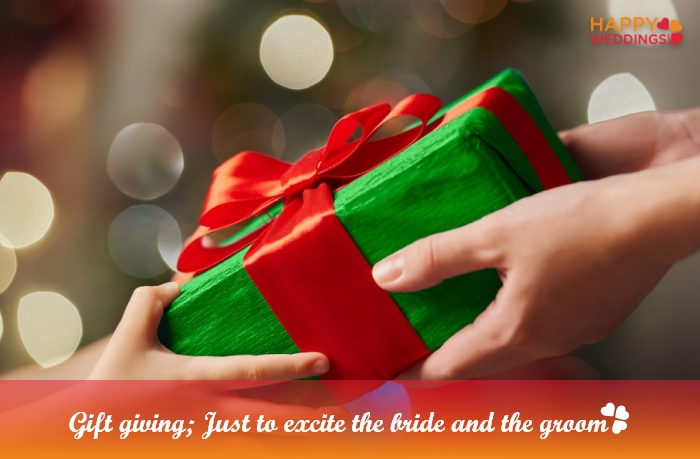
During the marriage ceremonies in Kerala, relatives and friends bestow expensive and exquisite gifts to the bride and the groom.
During the Nischayam ceremony (Engagement) also, this ritual happens and it requires proper planning because the gift you give either to the bride or the groom should match their interests.
Also Read: Nair Wedding in Kerala – Famous Rituals and Customs
Both the families consider the ritual a serious affair as they want the marriage ceremony to happen without any annoyance.
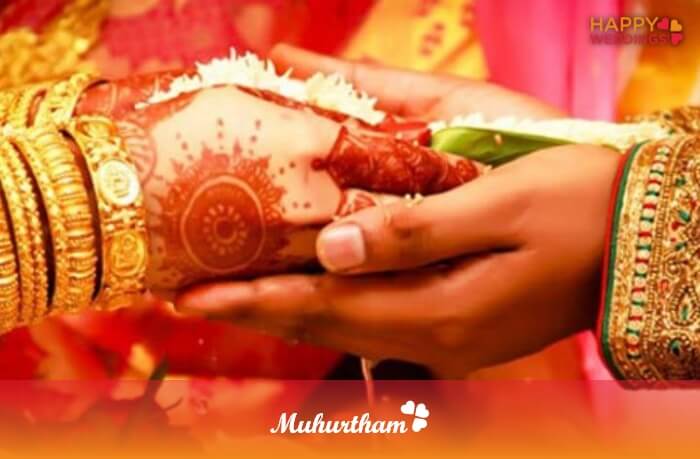
This is one fine thing to be noted. The perfect time to tie the knot is fixed after considering the astrological calculations.
It happens, especially in the morning. During Ezhava’s wedding, both the families seek advice from the best astrologers to fix the best time for the wedding.
As per the belief, the couple will have a perfect and lucky life if the marriage happens at the perfect time.
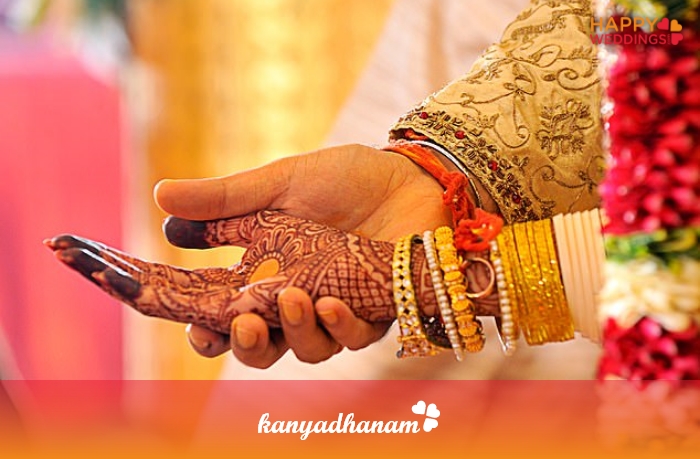
Kanyadanam means “giving away the bride”. It is an important ritual closely associated with Ezhava weddings. During the ritual, the bride’s father places his daughter’s hand on the hands of the groom which allegorically signifies that he is handing over the responsibilities of his daughter to him.
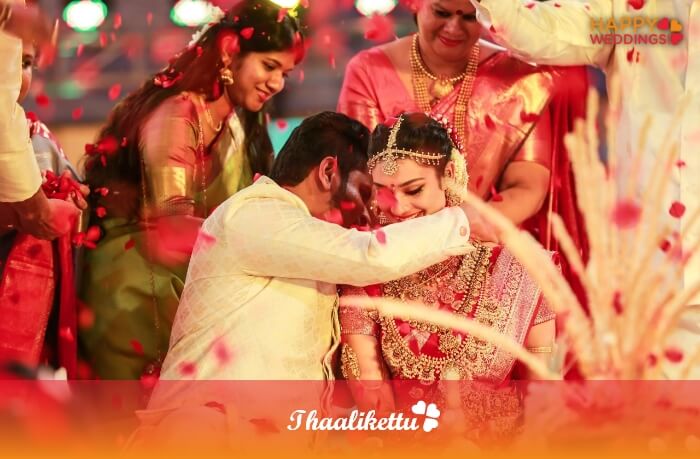
In Hindu wedding, Thaali (the wedding string) has great significance as it indicates the marital status of the bride. During the ritual, the groom’s father hands over the Thali.
The groom then ties the knot around the neck of the bride. All these ritualistic practices are held at the Mandapam (a decorated pavilion set inside the venue) while people shower them with flowers and blessings.
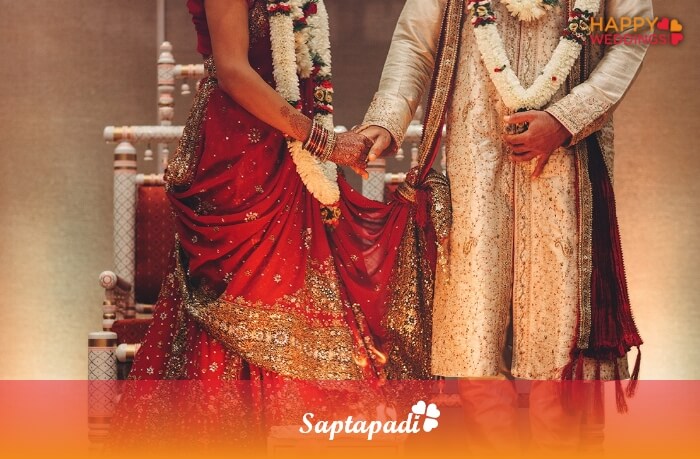
This is a sacred ritual during the Ezhava wedding ceremony. Once the ‘ Thaalikettu’ is over, the bride and the groom walk around the holy fire set amid the ‘Mandapam’. The groom holds the right hand of the bride and circles the fire. The ritual is considered auspicious as people believe that by doing so, the couple is going to have a promising life together.
Respect the rituals with Happy Weddings
Rituals are to be followed, not to be opposed. Those are our precious traditions made by our ancestors. Now, it’s your turn to follow such precious practices. And Happy Weddings is there to help you. Find your perfect partner by registering with us. It’s very easy and hassle-free.